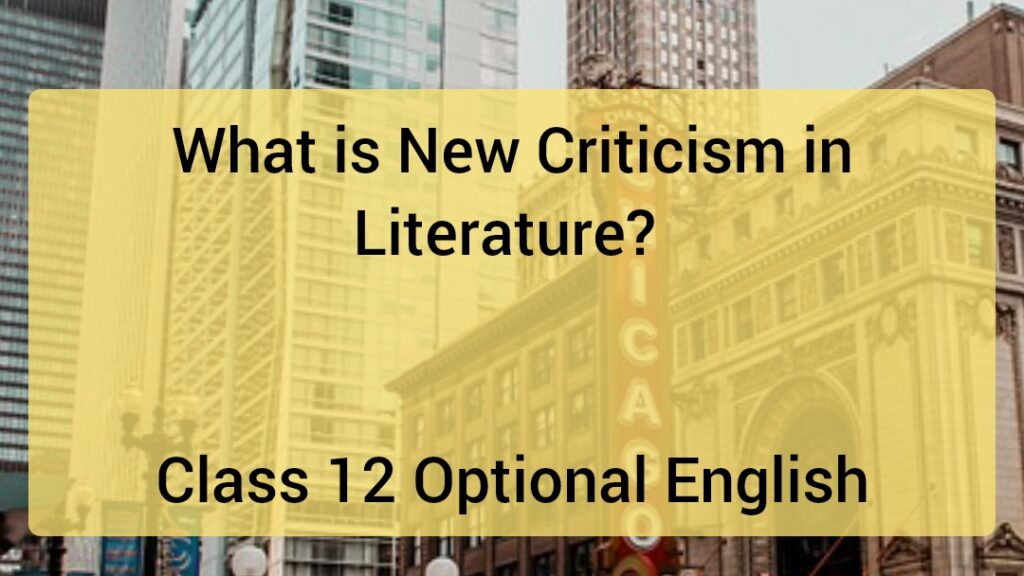What is New Criticism in Literature? Class 12 Optional English
Answer: New Criticism, also known as formalism, is a literary theory and approach to literary interpretation that emerged in the early 20th century. It focuses on reading the text carefully, ignoring intent. author, historical background, and reader response.
New critics believe that the meaning of a literary work lies in the text and can be analyzed through careful consideration of its formal elements such as structure, language, imagery, and expression. statue.
Here are some key features of New Criticism:
1. Close reading:
New critics emphasize careful examination of the text, analyzing its language, structure, and images to uncover meaning.
2. Objective approach:
They believe that a text should be judged on its internal qualities rather than on external factors such as the author’s biography or historical background.
3. Intentional error:
New critics reject the idea that the author’s intention determines the meaning of the text. They believe that the meaning of the work lies within the text itself.
4. Text unit:
They focus on the coherence and unity of the text, looking for patterns and symbols that contribute to its overall meaning.
5. Paradox and ambiguity:
New critics appreciate the paradoxes and ambiguities of the text, seeing them as essential elements that contribute to its complexity and richness.
6. Form elements:
They pay particular attention to the formal elements of literature, such as rhyme, dynamism, images, and symbols, as they believe that these elements contribute to the overall meaning of the text.
For further Reading: Class 12 Optional English Note Video

